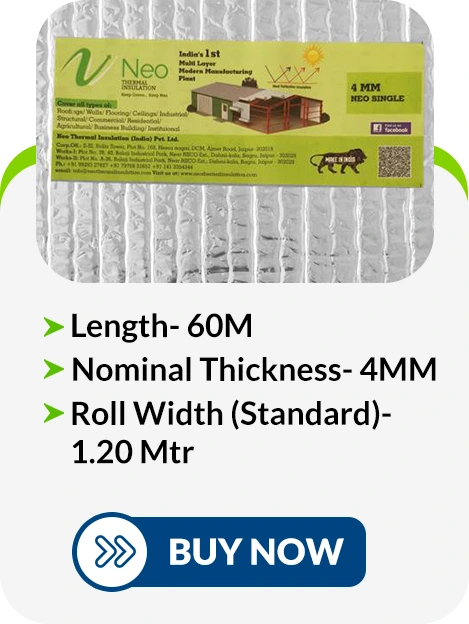Why Should You Insulate Basement of Your House? Pros and Cons

When we talk about basements, the first thing that strikes in the mind is “Store Room”. A place to keep all used or unwanted or occasionally used items. We find basement not so important to give it an extra care or invest an extra cent to maintain it. Moreover, we never ponder on a thought to insulate the basement, are we?
But after reading this blog, we assure that you will again give a second thought on insulating your basement. Do you know that discriminating or taking a chance with proper insulation of your basement can cost you heavily? What if we tell you that basement insulation actually improves the overall energy efficiency of your home! It also reduces consumption of energy, eliminates moisture retention on the walls and roofs.
So, let’s understand how we can manage our house thermal stability with the help of thermal insulation.
Basement Insulation
Basement insulation is not a rocket science but a proven skillful thermal insulation technique to implement high-quality thermal insulation material evenly on the desired area. The current buildings are having inbuilt thermal insulated basements. However, the already existing buildings are required to opt these energy-efficient approaches to insulate their basements.
Here are some questions to ask before insulating basement to give an affirmative response to your queries related to the insulation of the basement.
- What is the state of your house thermal stability? You need to have a home energy audit to get an idea of the exact thermal insulation required in your home to save energy consumption.
- If you have existing insulation, then what is the R-value of it? R-value is the measure of the capabilities of an object to resist the heat flow. The thermal insulation materials are present in various density and thickness. The more the thickness the better the thermal insulation.
It is obvious with the fact that there is a significant amount of air leakage through the walls, roofs, ceilings, vents, etc. Maintaining the thermal condition inside the house during the winter is difficult because heat travels from higher temperature to lower temperature. Basement being at the lower temperature condition, the heat travels from the rooms which are cozy and are at a high temperature. Thus, it becomes utmost important to insulate the basement with a high-quality thermal insulating material.
Which Part to Insulate in the Basement?
There are three major places where insulation is effective: exterior wall, interior walls, and ceilings. The best insulation placement depends on how the basement is used, also it depends on if the building is already existing or you are constructing a new building. However, you can use a combination of insulation to get the best result.
- Wall insulation: Wall insulation is the most vital part of the basement insulation because the maximum amount of heat is transferred through walls, especially if your surrounding climatic conditions are colder in the winter season.
- Ceiling insulation: A general way to insulate the ceiling of your building’s basement is fiberglass bat insulation. It will make the space in the basement much warmer and thermally stable.
- Floor insulation: When we start constructing a building, we make sure that the foundation is strong and don’t allow any kind of leakage in the building. Moisture retention can be a major issue if the floor is lacking proper insulation. Thus, insulation contractors in India recommend floor insulation for the existing buildings and also for the buildings that are under construction.
Pros of Basement Insulation
– Maintain Thermal Stability:
Insulation prevents air leakage and heat transfer. It boosts comfort and helps in cost cutting of the utility bills.
– Control Moisture:
Moisture enters through the ground and foundation. This moisture gets trap in the basement due to lack of proper ventilation. Thus, a simple SPF foam sprayed onto inside wall can prevent moisture intrusion. For exterior insulation, fiberglass is the first choice.
– Prevents Freezing of Water Pipes:
Areas where mercury drops frequently, water pipes get frozen easily in the basements. Thus, basement insulation is the best and cost-effective solution.
– Reduces Energy Consumption:
When you insulate the basement, there is no place for heat to escape. Thus, maintains the desired temperature in the building which further cut down the energy consumption during variable climatic conditions.
Cons of Basement Insulation
-
Cost of Installation:
The cost is a variable quantity, highly depending on the type of thermal insulation material and the area (dimensions) required to insulate. However, the maintenance cost is 100% more than the initial cost of installation.
-
Degradation of Exterior Insulation:
The most common reason for the destruction or degradation of the external wall installation is insect infestation. Because of the direct contact to the external surrounding, insulation is highly susceptible to degradation.
-
Improper installation:
If the insulation contractor or agency is not having proper experience then, there will be loopholes in insulating your building. Thus, choose wisely a thermal insulation contractor to get the best services.
Conclusion
Basement insulation is surely an important factor to consider while insulating other parts of the building and especially if that building is your comfy house. You might think that thermal insulation is a costly approach or investment but if you are in a construction phase then it will not cost you much compared to the other investments. It surely enhances the lifespan of the building and reduces the post-maintenance costs. Live comfortably and save your energy consumption to reduce your expenses.





